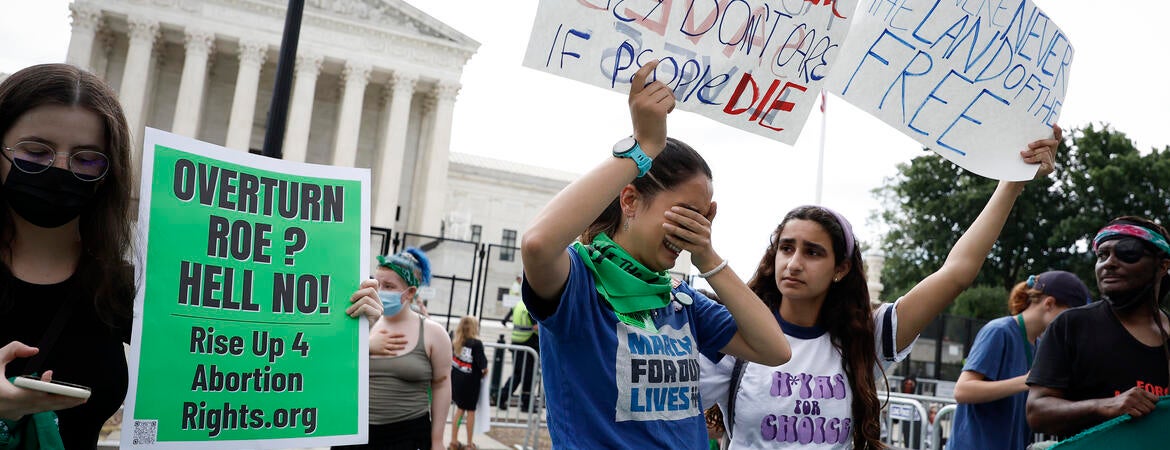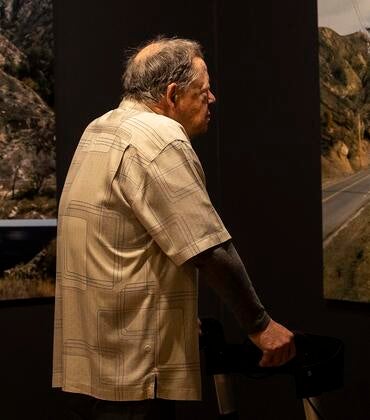
Forty-nine years after the landmark decision Roe v. Wade became constitutional law, the United States Supreme Court overturned the federal protection for abortions.
The decision came down Friday, June 24, giving full authority to individual states to punish, or not, women who abort. While many U.S. states will criminalize this medical procedure, in California abortions will continue to be protected under state law.
The same day UC Riverside Chancellor Kim A. Wilcox and UC President Michael Drake issued a statement in support of reproductive healthcare rights.
“I stand with President Drake, our leaders in California, and healthcare advocates who are working to protect reproductive healthcare rights. Today’s decision intensifies the need to fight for human rights protections, but it will not change the services we provide, including reproductive healthcare services,” Wilcox said in a statement.
Victoria Reyes, an assistant professor of gender and sexuality studies at UCR, shares why she supports abortion rights. This Q&A is partially taken from the OpEd she authored in the LA Times on June 12, 2022, titled “I am the product of rape. Here’s why I support abortion rights.”
Q: Why is sharing personal stories important in moving conversations forward regarding reproductive rights?
A: I’ve achieved many accomplishments — Ph.D. from Princeton, a tenure-track job at a research university, fellowships, grants, awards and two children. Many people who are against abortion rights would look at me, and say, “See — you’re here and have accomplished so much.” I could be a poster child for antiabortion activists and the Supreme Court justices who would use my life as an example of a “good” result in forcing someone with a uterus to carry a pregnancy full-term.
Yet those forces rarely seem to care about policies that would support the needs of the parent and the child after birth. I support abortion rights. I’m pro-bodily autonomy for every person. And why is that? It’s because my mother needed to have that choice.
Q: Your mother was raped. Thank you for being so brave in sharing this very intimate piece of information. Why is it important for women to speak up, to be open about these brutal realities?
A: It’s clear my own mother — at least at times — had wanted to abort me but didn’t. But aborting me wouldn’t have stopped her pain. She was raped more than once over the course of her childhood by someone who should have protected her. I often wonder what her life would have been like if she hadn’t had me when she was so young. If she aborted me and wouldn’t have been reminded about her trauma every time she looked at me.
Would she have been able to go to college? Would she have been able to break a cycle of abusive relationships? Would she have had a happy life?
Many — too many — women of color, Indigenous women, immigrant women, poor women, white women, trans women, women whose identities intersect these categories, and others, share histories, especially family histories, of sexual violence. This is not a new story. It’s been going on for centuries and continues today. And this sexual violence tells women, implicitly, that we are unworthy of being safe.
Q: What questions would you ask lawmakers, anti-abortion supporters?
A: I am the product of rape and I see what that did to my mother. And no, I don’t think the world is made better because I’m here.
If antiabortion activists are adamant every life matters, why don’t they care about the women who are raped or others who will be forced to give birth if abortion rights are destroyed? What about their well-being? Their health and safety? Why do they value a cluster of cells or a fetus that can’t survive outside the body more than the life of a person?
Readers can find more personal stories in Reyes’ forthcoming book, “Academic Outsider: Stories of Exclusion and Hope,” set to publish next month.
Header photo: GettyImages



